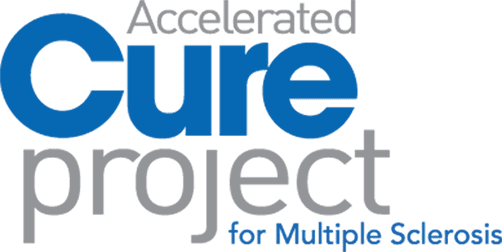The FDA has approved many MS treatments to modify the disease, address relapses and manage symptoms. However, these treatments aren’t fully effective, and many with MS still experience flares, disease progression and ongoing symptoms. Some people choose alternative medicine to improve their quality of life, usually in combination with their prescribed MS treatments. Researchers are looking into the benefits and risks of these therapies for MS and its symptoms. Here are three recent studies with promising results!
Can brain stimulation help people with MS think better?

Background: Up to 65% of people with MS struggle with their thought processes at some point in the course of the disease. These problems can have major impacts on a person’s quality of life.
Transcranial alternating current stimulation (tACS) is a method where a gentle electrical current is applied to the scalp. It aims to affect the brain’s natural activity by applying rhythmic electrical pulses at specific frequencies. Researchers use tACS to study and potentially modify brain functions related to thinking and neural patterns. However, the full extent of its applications is still being studied.
The Study: Researchers at UCSF recently explored whether tACS might improve thinking problems in people with MS. The team studied 60 people with MS and cognitive issues. They tested information processing speed of study participants using a standard test. Participants then had a 20-minute session of tACS (some high dose, some low dose, and some a placebo) while doing a cognitive program on a tablet. Afterward, they retested processing speed and checked for tolerability, side effects, and acceptability.


Results: One tACS session significantly boosted processing speed, especially with the lower dose, while the control group didn’t show notable improvement. Participants tolerated tACS well, and everyone completed the study.
Why is this significant? These results show promise for a non-drug intervention that may help address cognitive problems in people with MS. The investigators note that further study is needed to confirm these findings and to determine if repeated tACS sessions would be even more helpful. They also raise the possibility of adapting tACS to portable versions that could be used at home.
Can acupuncture provide short-term relief for MS fatigue?

Background: As we covered in our October 2023 newsletter, 80% of people with MS experience fatigue, and over half rank it as one of their most troubling symptoms. Fatigue can be either physical, impacting energy and motivation, or cognitive, affecting concentration, or both at the same time.
Acupuncture is an ancient healing practice from traditional Chinese medicine. Thin needles are inserted at different points on the body. This stimulates specific energy pathways and enhances the flow of the body’s vital energy, known as “chi.” This activity is thought to trigger the release of natural pain relievers, possibly enhancing blood circulation and affecting brain function.

The Study: A 2023 study looked at the effectiveness of acupuncture on fatigue in people with relapsing-remitting MS who were not experiencing an exacerbation. Participants were divided into two groups of 30 each. The first group underwent acupuncture treatment 2-3 times a week for four weeks (a total of 10 sessions). They also received a daily dose of 100 mg amantadine along with their prescribed disease-modifying therapy (DMT), if applicable. The second control group received daily amantadine along with their prescribed DMT.

Results: Both groups experienced a decrease in fatigue, but the acupuncture group showed a more significant reduction compared to the control group. In addition, the acupuncture group had significantly greater improvements in their quality of life, both physically and mentally. No adverse events were reported in either group.
Why is this significant? The findings from this study suggest that when administered by appropriately trained and licensed professionals, acupuncture could offer a potential solution for individuals with MS struggling with fatigue.
Does Sativex mouth spray help with MS spasticity?

Background: Spasticity and muscle spasms can have a big impact on the quality of life and daily activities for over 80% of people with MS. This occurs when the signals between the brain, spinal cord, and muscles are interrupted by demyelination, making it hard to move the affected limb.
Sativex, also called nabiximols, is a mouth spray made from cannabis extract that is used abroad for the treatment of MS-related spasticity (it isn’t FDA-approved for use in the United States). Sativex is used when other treatments haven’t worked well or have too many side effects. It can be used along with existing anti-stiffness medications and is administered on the inside of the cheek or under the tongue.


The Study: A recent international study analyzed results of two clinical trials of nabiximols (one and two). Both studies had two stages, starting with Part A, where all participants were given a daily oral spray of nabiximols. Those who improved by 20% or more moved on to Part B, where half continued nabiximols, and half received a placebo for 12 weeks. This two-step approach allowed investigators to study the impact of the medication in a population of known responders.
Results: People with MS spasticity experienced significant relief using a daily oral spray with cannabinoids. In the first study, there was a 19% decrease in daily spasms, and the second study showed a 35% improvement, especially in the leg muscles. Overall, participants in both studies tolerated nabiximols well.

Why is this significant? The majority of people with MS experience spasticity, and current treatments often fall short. If Sativex is approved by the FDA, it could help fill a significant gap in addressing the needs of those in the United States with MS-related muscle spasms and stiffness.

iConquerMS was developed to engage people with MS to drive and shape research on topics like this that are of great interest to the MS community. The data provided by network members are a valuable resource, giving investigators insight into the effectiveness of MS treatments, both from the clinical and personal perspectives. If you haven’t already done so, please consider joining. With your participation and support, we can add to the pool of real-world data that researchers have to draw from for these important studies and help improve quality of life for everyone living with the disease.



